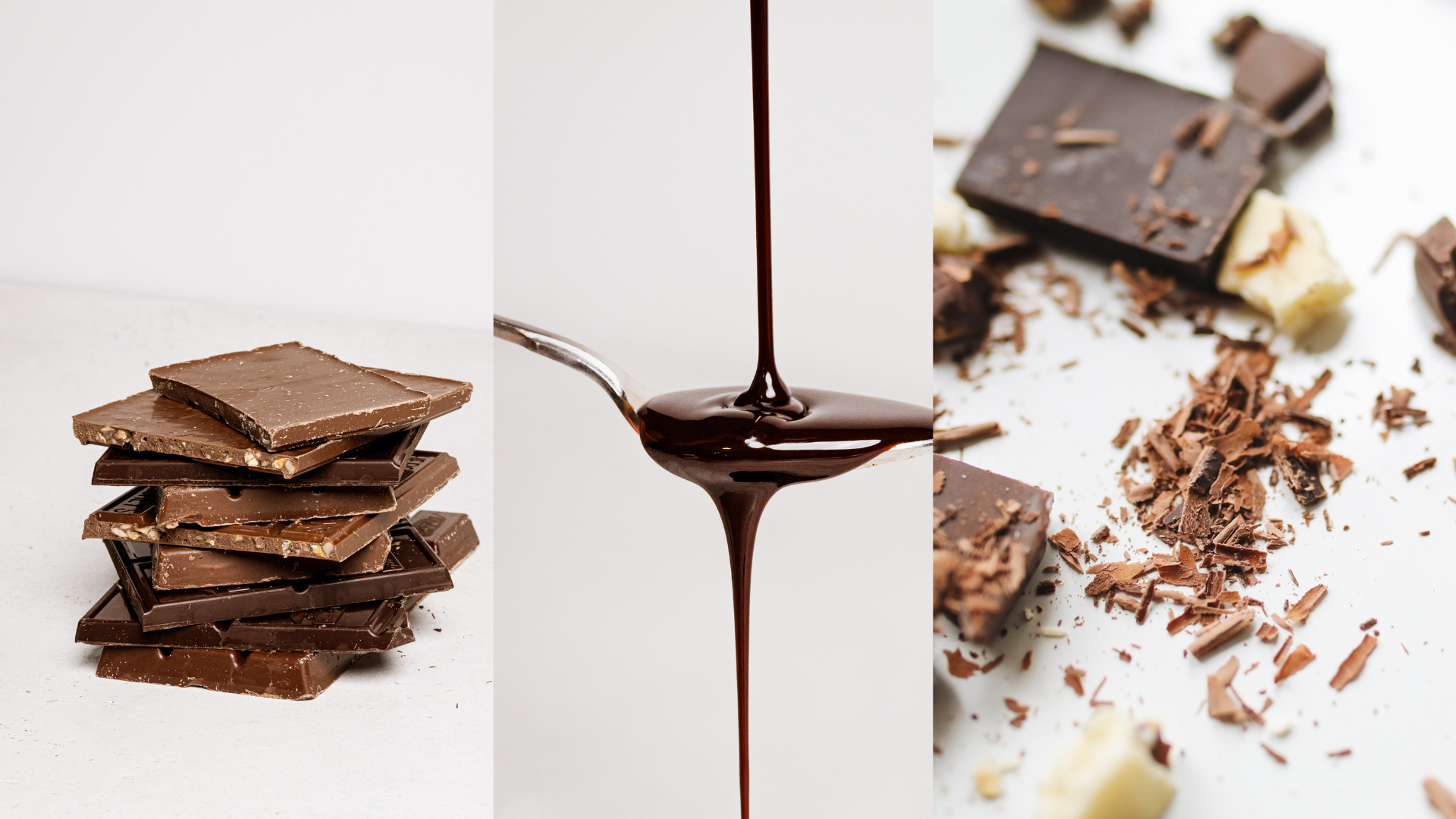Dark Chocolate: Health Benefits, Risks, and Everything You Need to Know
Dark chocolate is no longer just a delicious treat — it has become a nutritional ingredient regarded as a healthy option when consumed in moderation. It contains a high percentage of cocoa, making it a rich source of antioxidants and beneficial plant compounds. In this article, we explore the top health and nutritional benefits of dark chocolate, its potential harms when consumed excessively, supported by recent statistics, comparison tables, and a FAQ section.
First: Benefits of Dark Chocolate
1. Rich in Antioxidants
Dark chocolate is one of the richest natural sources of antioxidants, such as polyphenols, flavonoids, and catechins. These compounds help fight free radicals in the body, reducing the risk of chronic diseases like cancer, diabetes, and heart disease. A 2021 study found that dark chocolate contains more antioxidants than blueberries and green tea.
2. Improves Heart Health
Consuming dark chocolate moderately as part of a balanced diet can benefit heart health by:
- Lowering blood pressure by dilating blood vessels.
- Improving blood circulation and flow.
- Reducing bad cholesterol (LDL) and increasing good cholesterol (HDL).
- Decreasing the risk of heart attacks by up to 37%, according to a study published in the European Journal of Preventive Cardiology.
3. Enhances Brain Function
Cocoa contains theobromine and small amounts of caffeine, stimulating the central nervous system and improving cognitive performance and focus. Research also suggests that regular cocoa consumption boosts blood flow to the brain, potentially reducing cognitive decline in the elderly.
4. Supports Skin Health
The flavonoids in dark chocolate improve skin elasticity and protect it from harmful UV rays. They also enhance blood flow to the skin, increasing its radiance and hydration. A study published in the Journal of Clinical Nutrition observed improved skin density and elasticity after consuming dark chocolate daily for 12 weeks.
5. Improves Mood
One of the most famous benefits of dark chocolate is mood enhancement. It stimulates the release of serotonin and endorphins — neurotransmitters responsible for happiness. Additionally, its magnesium content helps reduce anxiety and stress. A small piece of dark chocolate can help relieve stress and improve overall mood.
6. Enhances Insulin Resistance
Some studies suggest that cocoa improves the body's sensitivity to insulin, making dark chocolate beneficial — in moderation — for people with type 2 diabetes when incorporated into a balanced diet.
Dark chocolate contains polyphenols, flavonoids, and catechins, powerful antioxidants that fight free radicals, helping to reduce inflammation and cellular damage.
Second: Risks of Dark Chocolate
1. High-Calorie Content
Despite its health benefits, dark chocolate is relatively high in calories — 30 grams provide around 170–200 calories. Overeating it can lead to weight gain and metabolic issues, especially with low physical activity levels. Its high-fat content can also contribute to visceral fat accumulation, increasing the risk of heart disease and obesity.
2. Caffeine Content
Dark chocolate contains caffeine and theobromine, which stimulate the nervous system. Excessive consumption can lead to:
- Insomnia, especially if eaten at night.
- Increased heart rate.
- Heightened anxiety levels in caffeine-sensitive individuals.
- Interference with the absorption of minerals like iron.
3. Heavy Metals
Some commercial brands contain trace amounts of lead and cadmium — heavy metals that can cause health issues over time, such as:
- Impaired kidney function.
- Developmental issues in children.
- Neurological disorders.
- Thus, it's crucial to choose organic or certified trusted products.
4. Digestive Disorders
Large quantities of dark chocolate, particularly those high in saturated fat or artificial sugars, may cause:
- Constipation.
- Heartburn or bloating.
- Difficulty digesting, especially for individuals with Irritable Bowel Syndrome (IBS).
- Some artificial sweeteners may also worsen digestive problems for some people.
Despite its benefits, dark chocolate is calorie-dense — a 30-gram piece contains around 170–200 calories, which could lead to weight gain if portions are not controlled.
Comparison: Dark Chocolate vs Milk Chocolate
CriterionDark ChocolateMilk ChocolateCocoa Content50–90%10–50%Sugar ContentLowerHigherHealth BenefitsGreater due to antioxidantsRelatively fewerCalorie ContentHighHighFat ContentHighHighBetter for Heart Health✅❌
The global dark chocolate market was valued at approximately $62 billion in 2023 and is expected to reach $79.4 billion by 2028, with a 5.1% compound annual growth rate.

FAQs
❓ What is the best cocoa percentage to gain health benefits?
It is recommended to choose chocolate containing 70% cocoa or higher for genuine health benefits.
❓ How many pieces can I eat daily?
It is advised to consume only 20–30 grams of dark chocolate daily to enjoy its benefits without causing weight gain.
❓ Is dark chocolate suitable for diabetics?
Moderately, yes. Dark chocolate has relatively less sugar compared to milk chocolate, but it’s best to consult a doctor before including it regularly.
❓ Does dark chocolate cause addiction?
It does not cause addiction in the medical sense, but it contains substances like caffeine and theobromine that may lead to habitual cravings.
❓ Can children eat dark chocolate?
Yes, but it’s preferable to offer small amounts to children over 5 years old due to its high caffeine content.
Conclusion
Dark chocolate is a delicious and beneficial food when consumed in moderation, offering a variety of health advantages for the heart, brain, and skin, as well as mood enhancement. However, excessive intake may lead to negative effects like weight gain and sleep disturbances. Always opt for high-quality, regulated brands to maximize benefits and avoid risks.
Shop in Our Store Here
#Dark_Chocolate_Benefits #Dark_Chocolate #Heart_Health #Mood_Improvement #Healthy_Foods #Nutrition #Antioxidants


